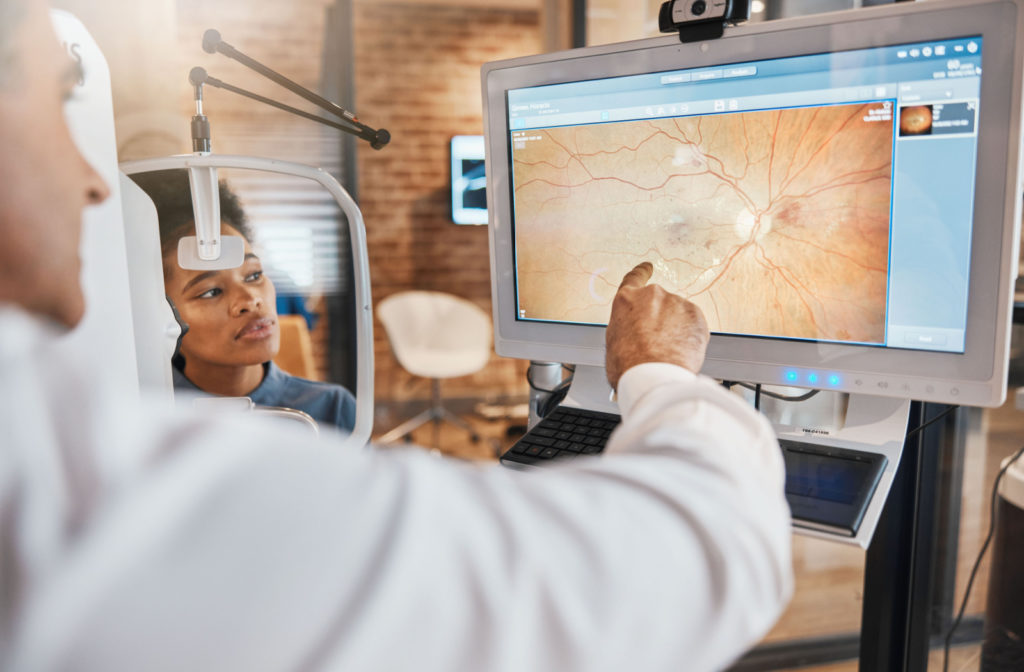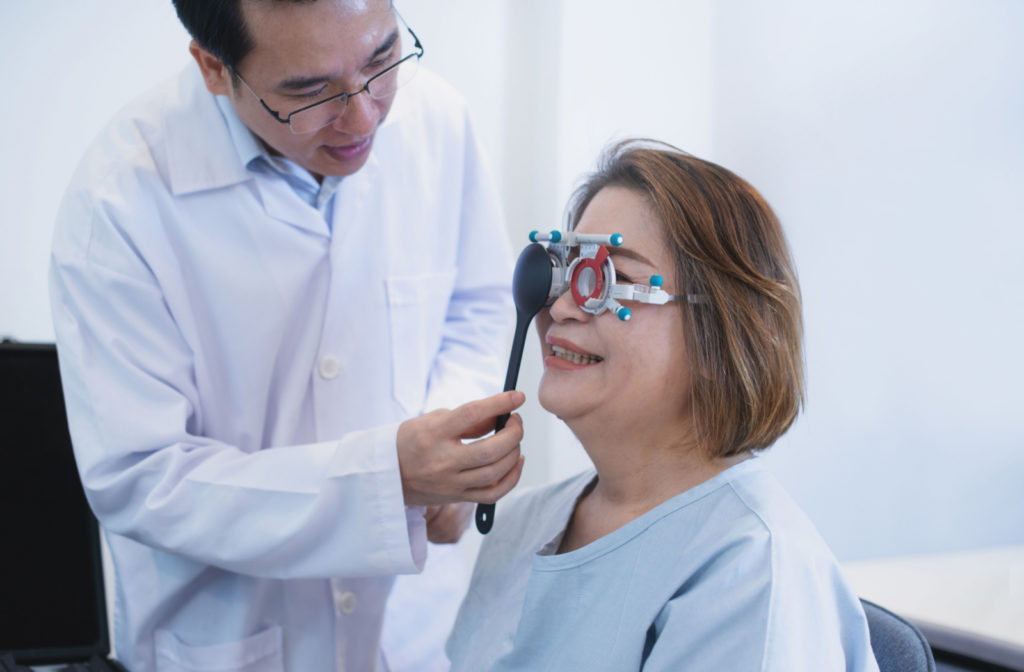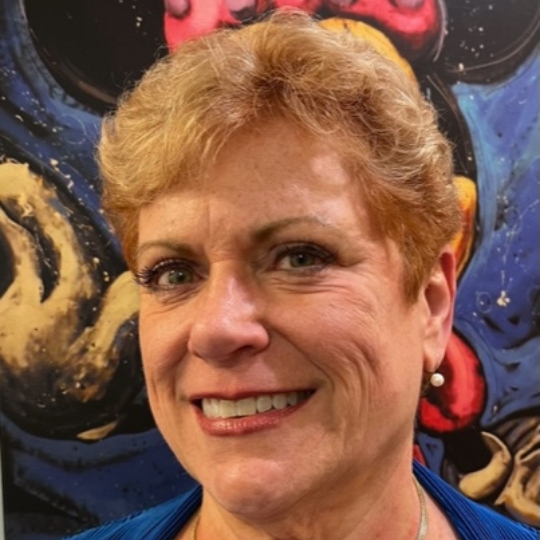Comprehensive eye exams are a critical part of caring for your vision and eye health and can take anywhere from 30 to 60 minutes on average. But exams vary from person to person depending on your personal eye health and the involved tests.
For example, an initial eye exam with a new optometrist could take 60 minutes or more, but subsequent exams would not take as long if your eyes are healthy and you have no major vision concerns.
We all live busy lives, and it can certainly be tempting to put off routine eye exams. But they are important for so much more than clear vision. Your eye doctor will also check for eye diseases and other health concerns like cancer or diabetes.
Comprehensive Eye Exam vs. Vision Screening
A comprehensive eye exam is an in-depth evaluation of your vision and overall eye health. It involves a series of tests that analyze the functionality of your eyes, including your visual acuity, eye alignment, eye movement, focusing ability, and peripheral vision. Your eye doctor may also dilate your pupils to get a better view of the interior of your eyes to help them detect other medical conditions.
A vision screening is a quick and straightforward test that assesses your vision in a simple way. It checks only for basic vision issues like nearsightedness, farsightedness, and astigmatism. It does not check for underlying medical conditions that could affect your eye health.
Vision screenings may be a good addition to your overall eye care routine, but they are not a substitute for comprehensive eye exams.
Why are Eye Exams Important?
Your eye doctor doesn’t only check your eyesight during an eye exam. They’re also looking for vision-threatening eye diseases like glaucoma, retinopathy, cataracts, and macular degeneration. They also look for signs of health issues like diabetes, high blood pressure, and even certain types of cancer. This is because your eyes are the only place in the body where your blood vessels can be directly observed, and even slight changes in your vision may be the first indication of these conditions.
An eye exam can save your vision and life. It’s crucial to have regular comprehensive eye exams even if you think your vision is fine. You never know what they might uncover.
Eye Exam Frequency
A comprehensive eye examination is recommended every 1–2 years, depending on your age, family history, and overall health. Keep in mind that these are general age-based guidelines set out by the American Optometric Association, but your eye doctor knows your unique situation and may have a different recommendation.
How Long Do Eye Exams Take?
An eye exam typically takes anywhere from 30 to 60 minutes, but the exact length of your appointment can vary depending on a few factors. These include your overall eye health, whether you need additional tests, and if you’re getting a new prescription for glasses or contact lenses.
Eye dilation during the exam allows your optometrist to get a better look at the back of your eyes, but this process can make your exam take a bit longer. Sometimes, the entire appointment, including picking out new eyewear, might take up to 90 minutes.
The Eye Exam Process
Eye exams aren’t one-size-fits-all. They vary based on your needs and specific situation. However, there are some tests and steps we always include during an eye exam.
Kick-Off Conversation
We’ll typically begin your eye exam with a chat about your health and vision. We’ll discuss your health history, family health history, current concerns, and more to help us tailor the exam to your needs.
We’re here to make your eye care experience as beneficial as possible, so don’t hesitate to ask if you have any questions or concerns about your vision or eye health.
Visual Acuity Testing
After our initial chat, we’ll test your visual acuity. This step helps us determine the right glasses or contact lenses prescription.
We use various methods to test your visual acuity, including the phoropter and Snellen eye chart. Once we’ve got a good sense of your visual acuity, we’ll shift our focus to assessing the health of your eyes.
Eye Health Screening & Assessment
Checking out the health of your eyes is a key part of the eye exam. We use tech like iCare tonometer, retinal imaging, and ocular coherence tomography to spot even the tiniest signs of an eye disease.
Some of the most common eye diseases are age-related macular degeneration, glaucoma, and diabetic retinopathy.
Wrapping Up

We’ll finish off your eye exam with a discussion about your results. Your optometrist can walk you through everything they found and discuss any prescriptions that can help keep your vision sharp and your eyes healthy.
What to Expect
Everything we discussed here should give you an idea of how long an eye exam should take, how often you should get one, and the process we typically follow at Vision Care Grayslake. When you come in for an eye exam, your eye doctor will walk you through the unfamiliar parts of the appointment. Make sure to also bring your current prescription glasses or contacts so your eye doctor can check their effectiveness.
Book Your Next Eye Exam
We believe in the value of a comprehensive eye exam at Vision Care Grayslake. It’s so much more than just a check-up—it’s an opportunity for us to ensure your eyes are healthy and functioning well. We take time to examine every aspect of your vision, from acuity to alignment, movement, and peripheral vision. And we don’t stop at the surface—we delve deeper, using technology to detect signs of disease or underlying health issues. Call us today to book an eye exam.




